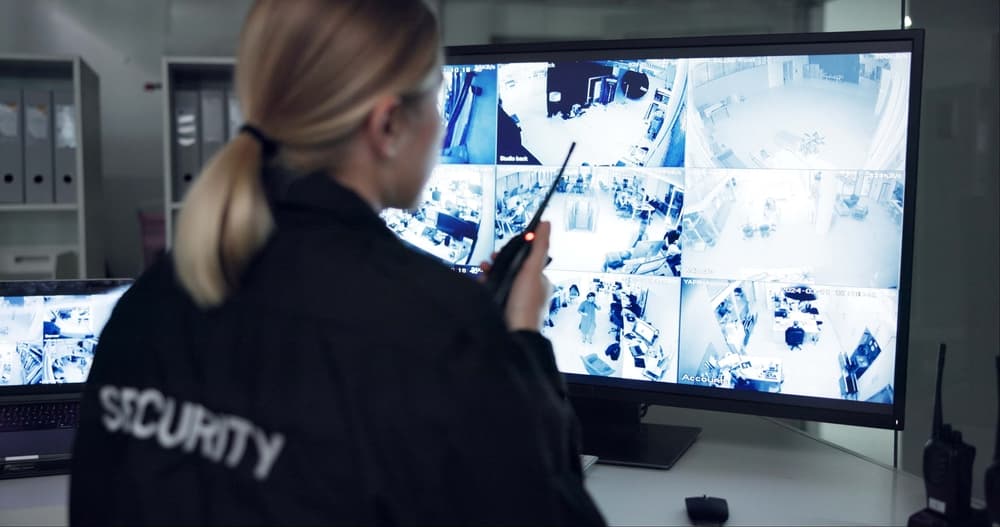What Is a Negligent Security Claim?

A negligent security claim is a type of premises liability claim in which an individual seeks compensation for injuries sustained as a result of a criminal act on a property that lacked proper security measures. In Texas, property owners have a legal duty to provide a reasonably safe environment for visitors, tenants, or patrons. When they fail to do so and someone gets hurt as a result, the property owner may be held liable for the damages.
Negligent security claims typically arise from incidents such as assaults, robberies, shootings, or other violent crimes that occur on poorly secured premises. Common places where negligent security can be an issue include apartment complexes, hotels, parking garages, shopping malls, nightclubs, and college campuses. The legal principle behind these claims is that property owners must take reasonable steps to protect lawful visitors from foreseeable criminal acts.
When Can You File a Negligent Security Lawsuit in Texas?
Certain legal conditions must be met to file a negligent security lawsuit in Texas. One key factor in establishing this concept is “foreseeability.” Foreseeability means that the property owner should have reasonably foreseen that criminal acts were likely to occur on their premises based on prior criminal activity in the area.
The distinction between public and private property is also important in determining liability. While property owners have a duty to provide reasonable security measures on their premises, the extent of the duty may vary depending on whether the property is public or private. For example, a property owner of a commercial establishment may have a higher duty to provide security measures than a municipality that owns public property.
Examples of situations where a negligent security claim may be valid include repeated break-ins or assaults on a property that the owner or manager failed to address. These incidents demonstrate a pattern of criminal activity that should have put the property owner on notice and prompted them to provide better security measures.
Key Elements of a Negligent Security Case in Texas
Certain key elements must be proven to succeed in a negligent security lawsuit in Texas. These elements include:
Duty of Care
Property owners have a legal obligation to provide reasonably safe conditions for visitors. The extent of this duty varies depending on the relationship between the victim and the property owner. There are three categories of visitors recognized under Texas law: invitees, licensees, and trespassers. Invitees are owed the highest duty of care, followed by licensees and trespassers.
Breach of Duty
To establish a breach of duty, it must be shown that the property owner failed to implement reasonable security measures. These can include inadequate lighting, a lack of surveillance cameras, failure to hire security personnel, or any other deficiencies in security measures. The standard for inadequate or negligent security may vary depending on the circumstances and industry standards.
Causation
There must be a direct link between the security breach and the criminal act that caused the victim’s injury. It is important to show that the proper security measures could have prevented or deterred the incident. Establishing this causal relationship can be challenging but is imperative in a negligent security case.
Damages
The victim must have suffered physical, emotional, and/or financial harm as a direct result of the incident. Damages that may be recovered in a negligent security lawsuit include medical bills, lost earnings, pain and suffering, and any other losses incurred due to the incident.
Evidence Needed to Prove a Negligent Security Claim
Gathering the right evidence is critical in proving a negligent security claim. The following types of evidence can help support your case:
- Surveillance Footage: If surveillance footage is available, it can demonstrate a lack of response or criminal activity that occurred on the property.
- Police Reports and Crime Statistics: Police reports and crime statistics from the area can provide objective evidence of prior criminal incidents.
- Witness Statements and Testimony: Statements from witnesses who observed the lack of security measures or the criminal act can be effective in establishing liability.
- Photos or Documentation of Broken Security Equipment: If there are broken lights, cameras, gates, or other security equipment on the property, documenting these issues can help demonstrate the property owner’s negligence.
- Records of Past Crimes on the Property: If there is a history of crimes occurring on the property that the owner or manager did not address, it can support your claim.
- Expert Testimony: Expert testimony from security professionals can provide valuable insights into industry-standard security practices and help establish the measures that should have been in place to prevent the incident.
It is essential to act quickly to preserve evidence, as surveillance footage may be overwritten, witnesses’ memories may fade, and other evidence may be lost over time. Consulting with a Texas negligent security attorney as soon as possible can help ensure that vital evidence is preserved and your claim is built on a solid foundation.
Common Examples of Negligent Security in Texas
Negligent security can occur in various settings in Texas. Some common examples include:
- Assaults in Apartment Complexes: Apartment complexes with broken gates or no security patrols can create opportunities for criminal acts, putting residents at risk.
- Robberies in Poorly Lit Parking Lots: Parking lots without proper lighting or surveillance cameras can provide a haven for criminals, making it easier to target unsuspecting victims.
- Shootings at Clubs or Bars: Nightclubs or bars without adequate crowd control or security personnel may be more prone to violent incidents.
- Attacks in Hotels: Hotels with unsecured entry points can make it easier for criminals to gain unauthorized access, posing a threat to guests and employees.
- School or Campus Incidents: Failure to address known threats or implement preventive measures on campus campuses can put students, faculty, and staff at risk.
Legal Challenges in Texas Negligent Security Cases
Proving a negligent security case in Texas can present some challenges. One of the main challenges is the high burden of proof on the victim. It is essential to establish foreseeability and causation, showing that the property owner should have reasonably foreseen the criminal act and that the breach in security directly contributed to the victim’s injuries.
Property owners may raise defenses such as claiming the victim was trespassing or arguing that the criminal act was unforeseeable, potentially reducing the victim’s compensation. These legal challenges make it imperative to work with a Texas negligent security lawyer who is familiar with the state’s specific legal standards and can manage these complexities on your behalf.
Insurance companies and commercial property owners often have teams of attorneys working to protect their interests. By hiring a skilled Texas negligent security attorney, you level the playing field and ensure your rights are protected throughout the legal process.
Compensation Available in a Texas Negligent Security Lawsuit
You may be entitled to various compensation if you successfully prove your negligent security case in Texas. These may include:
- Medical Expenses: The cost of medical treatment, including emergency care, surgeries, therapy, and any ongoing medical needs.
- Lost Income: Compensation for the earnings you lost due to the incident, including any future earning capacity if your injuries result in long-term or permanent impairments.
- Emotional Distress: Damages for emotional distress, post-traumatic stress disorder (PTSD), anxiety, and the psychological toll the incident has taken on your well-being.
- Pain and Suffering: Compensation for the physical pain and suffering you experienced due to the incident.
- Property Damage or Stolen Belongings: If your personal property was damaged or stolen during the incident, you may be eligible to recover the value of those belongings.
In some cases, punitive damages may also be awarded if the property owner’s actions amounted to gross negligence or willful disregard for safety. Punitive damages are meant to punish the defendant and deter similar conduct in the future.
How a Texas Negligent Security Attorney Can Help

Whether the incident occurred at an apartment complex, retail store, hotel, or other property, proving that inadequate security measures led to your injury is no easy task. That’s why hiring an experienced attorney who focuses on negligent security claims is in your best interest. A skilled legal advocate can manage every aspect of your case and provide the support you need to pursue justice and compensation.
Thorough Investigation of the Incident
A negligent security lawyer will begin your case with a comprehensive investigation. It includes gathering all available evidence to build a strong legal claim. They will work to obtain surveillance footage that may show the incident or the absence of security personnel, analyze police reports, collect statements from eyewitnesses, and review the property owner’s history of criminal activity or prior complaints.
Determining All Liable Parties
In many negligent security cases, more than one party may be responsible for the harm you suffered. A seasoned negligent security attorney will work to identify every liable entity, whether it’s the property owner, landlord, management company, or even a third-party security contractor.
Dealing with Insurance Companies
Insurance companies are often involved in negligent security cases and try to minimize payouts or deny claims. Your negligent security lawyer will handle all communication with insurance adjusters on your behalf, so you don’t have to deal with their tactics alone. By leveraging their experience, your lawyer will advocate for the full value of your claim, pushing back against lowball settlement offers and working to ensure that your economic and non-economic losses are fully recognized and compensated.
Filing a Lawsuit and Representing You in Court
If the responsible parties or their insurance companies refuse to offer a fair settlement, your negligent security lawyer can take your case to court. It involves drafting and filing a formal complaint, conducting discovery, and preparing for trial. Your attorney will represent you during litigation at every hearing, motion, and deposition. In the courtroom, they will present compelling evidence, question witnesses, and deliver persuasive arguments to a judge or jury. Having an attorney who is comfortable in a courtroom and experienced with trial advocacy can make a significant difference in the outcome of your case.
Navigating the Legal Process in Texas
Texas law has its own set of rules, procedures, and deadlines that must be followed when filing a claim for negligent security. There are strict statutes of limitations that dictate how long you have to file a lawsuit—generally two years from the date of the injury. Failing to act within this window can result in the loss of your right to seek compensation. A Texas negligent security lawyer will ensure your case complies with all procedural requirements and is filed on time. Additionally, they will be familiar with local courts, judges, and regional trends that may influence your case strategy.
Take Legal Action to Hold Negligent Property Owners Accountable
Proving a negligent security case in Texas requires gathering strong evidence and understanding the complicated legal processes. If you or a loved one has been a victim of a crime due to negligent security, it is vital to take timely legal action to preserve evidence and meet filing deadlines. Contacting a skilled Texas negligent security attorney for a free consultation is the first step toward exploring your rights and legal options.
Remember, victims should not have to bear the cost of someone else’s negligence. By seeking legal representation, you can hold negligent property owners accountable and fight for the compensation you deserve. Contact a skilled personal injury lawyer near you today to discuss your case and take the necessary steps to protect your rights.

